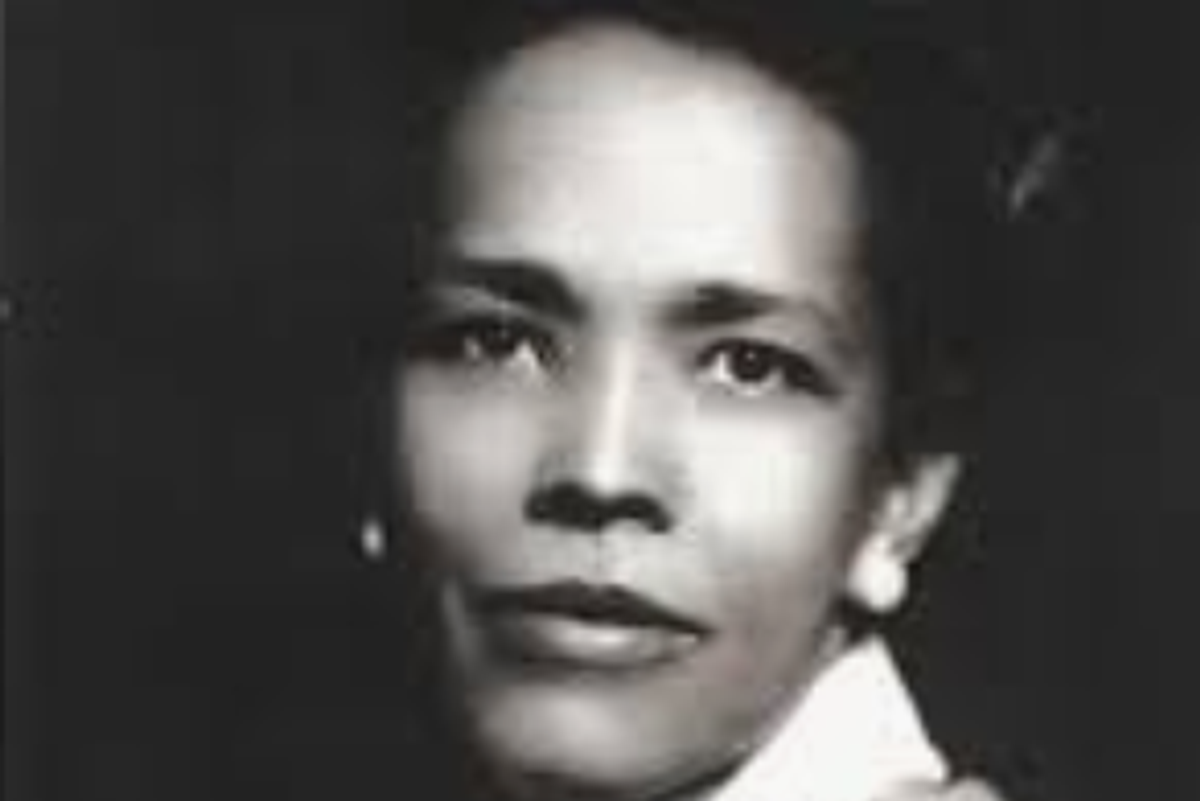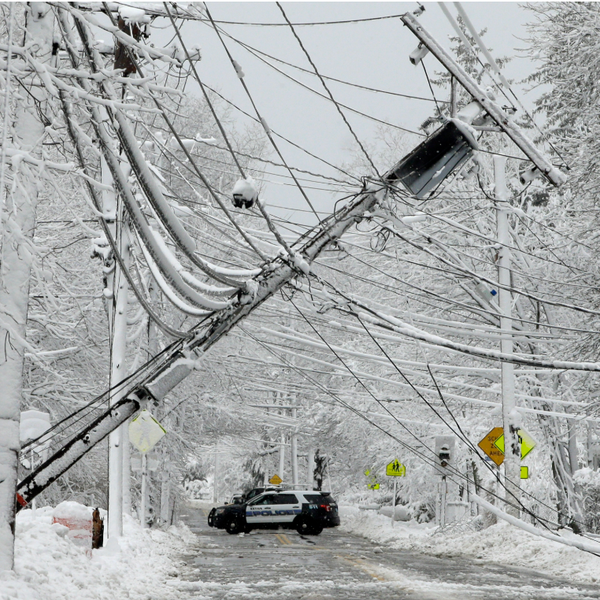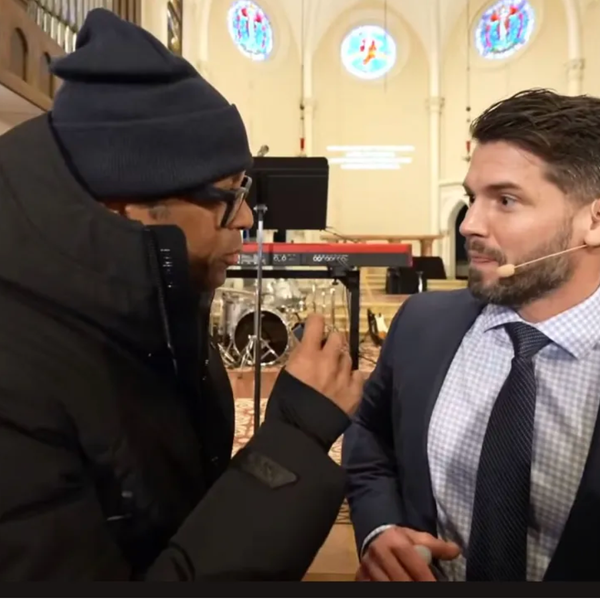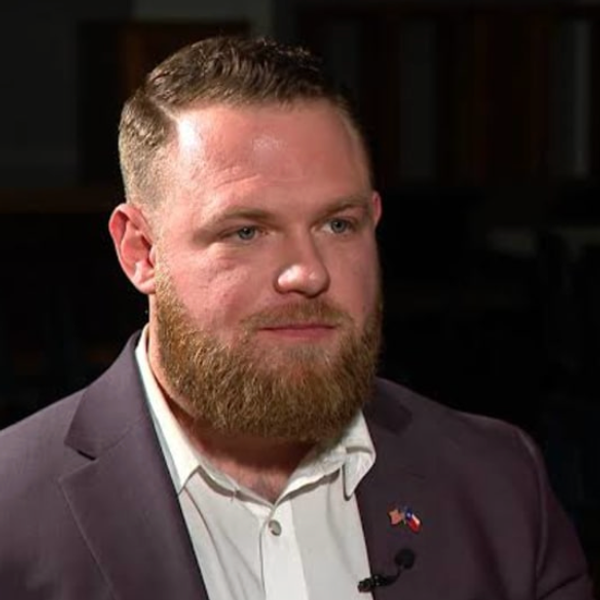Joe Biden Quoted Ella Baker In His Acceptance Speech -- Who Was She?

Human rigthts activist Ella Baker
Joe Biden opened his acceptance speech Thursday night by quoting someone whom most of the audience -- indeed, most American -- have never heard of.
"Ella Baker, a giant of the civil rights movement, left us with this wisdom: Give people light and they will find a way," Biden said. "Give people light. Those are words for our time."
He might have also drawn on another Baker quote from 1964: "Until the killing of black men, black mothers' sons, becomes as important to the rest of the country as the killing of a white mother's sons, we who believe in freedom cannot rest."
Baker's words continue to resonate today, as we witness the resurgence of a new civil rights movement, sparked by the police killings of young black men, but rooted in the underlying grievances of racial injustice around jobs, housing, schools, and the criminal justice system. The four-day Democratic convention shined a spotlight on Black Lives Matter and on Donald Trump's efforts to repress the nationwide upsurge of protest in the wake of the police killing of George Floyd, an unarmed black man, in Minneapolis in June.
As these protests persist, activists can learn much from Baker. Working behind the scenes, she helped transform the Southern sit-in protests into a powerful movement for racial justice, led by young people with lots of anger and determination, but little political experience. Baker also has much to offer Democrats hoping to regain the White House, Congress, and important local offices like mayor and District Attorney in November, because she understood the importance of combining nonviolent protest, grassroots organizing, and electoral politics, including voter registration and turnout.
Baker was a mentor to several generations of activists. One of them was John Lewis, the beloved Georgia Congressman who died last month. Lewis first encountered Baker in 1958 at a workshop at the Highlander Folk School, an inter-racial training center for activists in rural Tennessee. Lewis, a student at Fisk University in Nashville, was 18. Baker, then 54, was a veteran organizer. As Lewis described her in his autobiography Walking With the Wind, "Baker had become a legend of sorts during the previous twenty or so years for her knack of relating to young people." After hearing Baker speak, and participating in training sessions with other young idealists, "I left Highlander on fire," Lewis recalled.
Lewis returned to Nashville and joined forces with other students to develop plans to desegregate the stores in downtown Nashville by engaging in sit-ins, a form of civil disobedience. Baker, along with James Lawson, conducted workshops to prepare them to respond nonviolently upon being harassed, spat upon, beaten, and arrested by white thugs and police, and held in jail, where they were also beaten. She did the same thing for students in cities throughout the South, particularly those at historically black colleges.
The first sit-in occurred in Greensboro, N.C. late in the afternoon of Feb. 1, 1960, when four young black men—Ezell Blair Jr., David Richmond, Franklin McCain, and Joseph McNeil, all students at North Carolina Agricultural and Technical College —visited the local Woolworth's store. They purchased school supplies and toothpaste, and then they sat down at the store's lunch counter and ordered coffee. "I'm sorry," said the waitress. "We don't serve Negroes here."
The students refused to give up their seats until the store closed. The local media reported the sit-in on television and in the newspapers. The four students returned the next day with more students. By Feb. 5, about 300 students had joined the protest, generating more media attention and inspiring students at other colleges.
The Nashville students began their lunch counter protests on Feb. 13. By the end of March, sit-ins had spread to 55 cities in 13 states. Many students, mostly black but also white, were arrested for trespassing, disorderly conduct, or disturbing the peace.
Baker understood that the sit-in movement would eventually fizzle out unless the young activists came together to forge a common vision and organization. She persuaded Rev. Martin Luther King, Jr. to co-sign a letter inviting the sit-in participants to a meeting over Easter weekend, April 16 to 18, at her alma mater, Shaw University in Raleigh, N.C., to discuss how to capitalize on the growing momentum. Baker expected 100 participants to attend, but more than 300 activists showed up.
In her closing speech, "More Than a Hamburger," Baker pushed the students to dream of how their sit-ins could develop into larger efforts to challenge racism in "every aspect of life." As Lewis recounted, Baker "praised our success so far but warned that our work had just begun. Integrating lunch counters in stores already patronized mostly by blacks was one thing. Breaking down barriers in areas as racially and culturally entrenched as voting rights, education, and the workplace was going to be much tougher than what we had faced so far."
The fruit of the meeting was the founding of the Student Nonviolent Coordinating Committee (SNCC), which would expand the sit-in campaign, but also use other tactics, including freedom rides and voter registration drives, to dismantle segregation. SNCC reinvigorated the civil rights movement. The 20-year old Lewis was elected SNCC's first chairman.
Baker had spent decades traveling throughout the South for the National Association for the Advancement of Colored People (NAACP) and the Southern Christian Leadership Conference (SCLC). Long before there were Rolodexes, email, and Facebook, she was famous for her vast social network. She gently encouraged the young activists to build a movement from these isolated local protests.
Many of the young civil rights activists called her "Fundi," a Swahili title for a master technician who oversees apprentices, to acknowledge Baker's role as their mentor. She eschewed a visible role, concentrating on patiently training the next generation of social change leaders.
Born in 1903, Baker grew up in rural North Carolina. As a girl, Baker listened to her grandmother tell stories about slave revolts. Her mother, a deeply religious former teacher, tutored Ella at home and coached her in public speaking. As a child, Ella was part of a supportive and tightly knit black community, where friends, relatives, and neighbors helped each other out. Her grandfather mortgaged the family farm to help feed families in need. For high school, Baker's parents sent her to the boarding school affiliated with Shaw University. She remained at Shaw for college, edited the student newspaper, and graduated as class valedictorian in 1927.
She moved to Harlem, hoping to get a graduate degree in sociology., Financial hardship forced her to set aside her dream, but she got another kind of education by attending lectures and community meetings and devouring books and periodicals in local public libraries. Despite her college education, her race and gender limited her job prospects. While waiting on tables and working in a factory, she began to write articles for the American West Indian News. In 1932 she found a job as an editorial assistant and office manager for the Negro National News.
Harlem was a hotbed of radical activism, and Baker soon got involved with local groups working on behalf of tenants and consumers. In 1931, she became national director of the Young Negroes' Cooperative League, which sponsored cooperative buying clubs and grocery stores designed to reduce prices and bring people together for collective action. In her next job, funded by the New Deal's Works Progress Administration, she organized consumer cooperatives among housing project residents. In 1935, she wrote an exposé of the exploitation of black domestic servants for the NAACP journal Crisis.
Baker started working for the NAACP in 1938 and three years later became its assistant field secretary. For five years, she traveled throughout the South, recruiting new members, working with local leaders to strengthen their chapters, and helping them organize campaigns against lynching, for equal pay for black teachers, and for job training. Rosa Parks, an active NAACP member in Montgomery, Alabama, attended one of Baker's leadership-training workshops.
At the time, the NAACP's leadership was dominated by middle-class black businessmen, male professionals, and ministers, but most of its grassroots activists were working-class women and men. Baker's experiences convinced her that "strong people don't need strong leaders." She worked to cultivate what she called "group leadership" in contrast to leadership by charismatic figures or the professional class.
Soon after the 1955 Montgomery bus boycott began, Baker, Bayard Rustin, and Stanley Levinson (a close adviser to King) used their connections with northern liberals and unions to establish In Friendship, which raised funds for the boycott campaign. They talked with King about establishing a new organization to build similar campaigns throughout the South. This was the genesis of the SCLC, which catapulted King from local to national leadership. Rustin convinced Baker to run the new organization.
Baker bristled at the sexism and outsize egos of the ministers who dominated SCLC and treated her as if she were the hired help. She was on the brink of resigning when the student sit-in movement began in early 1960.
As Baker guided SNCC's young activists, she reminded them of her belief in radical democracy: "People did not really need to be led; they needed to be given the skills, information, and opportunity to lead themselves."
In 1964, Baker went to Mississippi to participate in SNCC's Freedom Summer project that brought over a thousand college student volunteers to the state to register black voters and help lead "freedom schools." That summer, hundreds of volunteers were arrested; racist thugs bombed 67 churches, homes, and stores. Three of the volunteers—black Mississippian James Chaney and white radicals Andrew Goodman and Michael Schwerner—were murdered by segregationist vigilantes.
The murders drew national media attention. When Baker was asked her reaction, she said: "The unfortunate thing is that it took this…to make the rest of the country turn its eyes on the fact that there were other (black) bodies lying in the swamps of Mississippi. Until the killing of a black mother's son becomes as important as the killing of a white mother's son, we who believe in freedom cannot rest."
The summer campaign culminated in a mock election organized by SNCC. Blacks elected an integrated slate of 68 members, under the banner of the Mississippi Freedom Democratic Party (MFDP), to challenge the official all-white delegation at the Democratic Party's national convention in Atlantic City in August. Baker helped enlist support from liberal delegates from around the country, but President Lyndon Johnson, fearful of alienating southern white voters, rejected the MFDP's plan. Instead, he offered MFDP two seats in the state delegation. Led by sharecropper Fannie Lou Hamer and Bob Moses (another Baker protégé), the MFDP rejected the compromise. But the controversy pressured the party to change its rules for subsequent conventions to require more women and minority delegates. And despite its frustrations with the Democratic Party, SNCC and its Freedom Summer project – along with the march from Selma to Montgomery the following March -- played a key role in pushing LBJ and Congress to pass the landmark 1965 Voting Rights Act.
Baker continued her political activism—working on school desegregation efforts with the Southern Conference Educational Fund, supporting independence struggles in Puerto Rico and in Africa, and allying herself with the Women's International League for Peace and Freedom and other women's rights groups—until her death on her 83rd birthday, Dec. 13, 1986.
Baker would surely be impressed by the current wave of protest against racial injustice. She would also urge the activists to make sure they transform their outrage into an ongoing movement that can survive beyond the immediate reaction to the epidemic of police abuses. That means building strong organizations that can identify and train young leaders, mobilize people around both short-term demands (such as videotaping police activities and ending local stop-and-frisk practices), and conduct campaigns for longer-term policy changes (such as repealing Stand Your Ground laws, sentencing reform, felon disenfranchisement, voter suppression, and living wages) at the national, state, and local levels.
On Thursday night, Biden enlisted Baker's words to inspire Americans to take the country back from the forces of reaction and racism. As Baker understood, the first step is to elect good people to office who support progressive causes, but the equally important next step is to build and sustain a powerful movement for social justice that can hold both your allies and your adversaries accountable.
Peter Dreier is professor of politics at Occidental College. His books include The 100 Greatest Americans of the 20th Century: A Social Justice Hall of Fame, We Own the Future: Democratic Socialism, American Style, and the forthcoming Baseball Rebels: The Reformers and Radicals Who Shook Up the Game and Changed America.
- The Improbable Rise Of Joe Biden - National Memo ›
- With Scorching Sarcasm, Biden Flips The Script On Trump - National Memo ›
- WATCH: Biden's Bold Pro-Labor Remarks Win Cheers From The Left - National Memo ›
- GOP Chaos Shouldn't Overshadow Biden's Powerful Speech (VIDEO) - National Memo ›
- Is The New York Times Doing To Biden What It Did To Hillary In 2016? - National Memo ›
- Why Americans Should Stop Idolizing The Ivy League - National Memo ›
- Fight Back, Mr. President -- Fight Back For The Soul Of Our Country - National Memo ›
- Biden's Challenge: Will We Choose Despotism Or Democracy? (VIDEO) - National Memo ›
- Pro-Trump Border Patrol Union Urges Congress To Pass Senate Bill He Opposes - National Memo ›
- Pew Data Disproves Reported Trump Advance Among Minority Voters - National Memo ›
- Drain The Swamp? Bribe-Gorging Trump Embodies The Swamp - National Memo ›








